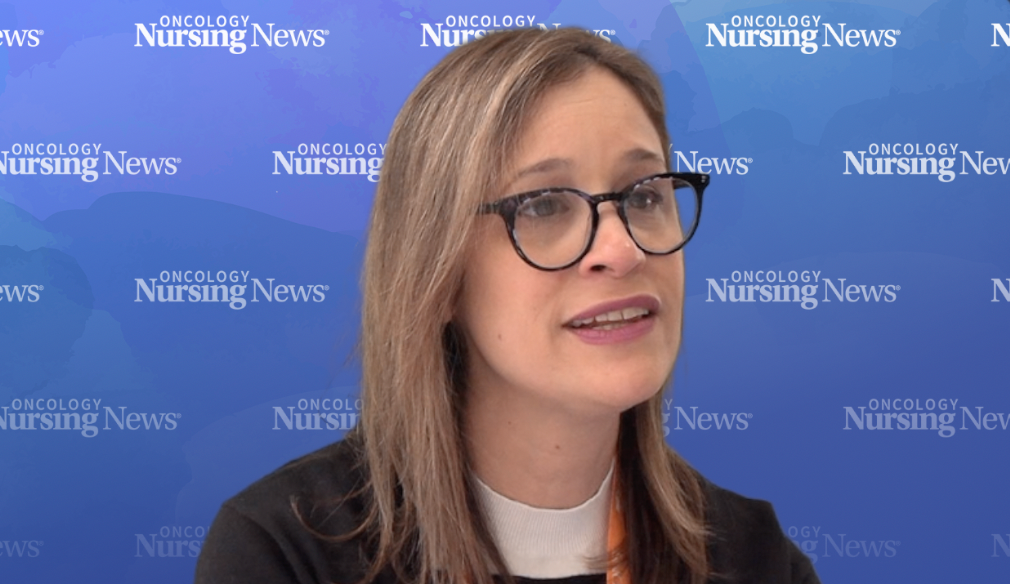Out-of-Pocket Costs, Insurance Status May Impact Genomic Testing Rates
Genetic testing decisions in patients with cancer may be affected by significant out-of-pocket costs.
dna genetics genomic tests © marina zlochin -adobe.stock.com.png

Some patients with cancer may face significant out-of-pocket costs related to their insurance coverage, which may impact decisions around administering genetic testing, according to findings from a retrospective analysis published in JCO Oncology Practice.
Among oncologists who reported using multimarker tumor panels in the 2017 National Survey of Precision Medicine in Cancer Treatment (n = 1049), 47.3% responded that patients’ insurance coverage was very important regarding the clinician’s treatment decision to recommended genomic testing; 32.7% responded that it was somewhat important, and the remaining 20% said it was of little or no importance. Additionally, 56.9% reported that out-of-pocket costs were very important when deciding whether to recommend genomic testing, with 28.0% and 15.2% responding that they were somewhat important and of little or no importance, respectively.
Notably, 14.3% of clinicians who responded to the survey said they often did not order a multimarker panel test due to lack of patient health insurance coverage, with an additional 36.5% saying they sometimes do not do so and 49.2% reporting they rarely or never do not do so. Similarly, 16.5% of clinicians responded that they often did not order genomic testing due to a patient’s out-of-pocket costs, with 37.6% saying they sometimes do not do so and 45.9% responding that they rarely or never due so due to out-of-pocket costs.
“In cancer, genetic testing is often looking for specific genetic pathogenic variants in a patient’s blood, often inherited from a parent,” Susan D. Klugman, MD, director of reproductive and medical genetics, program director of medical genetics and genomics at Montefiore Einstein, and professor of obstetrics and gynecology and women’s health at Albert Einstein College of Medicine in Bronx, New York, said in an email to our sister publication, OncologyLive. “Genomic testing is typically used in reference to the molecular composition of the patient’s tumor. All tumors have genetic changes that allow them to grow. Both germline and somatic testing can be used to personalize care for individual patients, including surveillance, medication, and surgical management.”
To conduct their study, investigators identified practicing clinicians who participated in the 2017 National Survey of Precision Medicine in Cancer Treatment, which was sponsored by the National Cancer Institute, the National Human Genome Research Institute, and the American Cancer Society. The survey was nationally representative and genomic tests were defined as single-gene tests for chromosomal mutations and multimarker tumor panel testing for multiple genes assessed for mutations, alterations, or expression that may provide clinically actionable information. Only tests for tumor tissue were considered, not those used for germline or inherited cancer predisposition.
Overall, the survey cooperation rate was 38% and only clinicians who reported using multimarker tumor panel testing in the past 12 months were included in the retrospective analysis. The main outcomes of the study were clinician’s ratings of the importance of patient health insurance coverage and out-of-pocket costs for genomic testing in treatment recommendations. The secondary outcome was the clinician’s ratings of the importance of insurance coverage and out-of-pocket costs in decisions not to order a multimarker tumor panel.
The primary outcome was centered around a survey question which asked clinicians how important it was that a test be covered by patient’s insurance and how important patient out-of-pocket expenses for testing were in terms of their decision to use multimarker tumor panels to make treatment decisions over the past 12 months. The secondary outcome was based on a survey question which asked clinicians how often they decided not to order a multimarker panel for a patient with cancer over the past 12 months due to the test not being covered by a patient’s insurance or due to out-of-pocket costs that were too expensive for the patient.
At baseline, clinicians included in the retrospective study were mostly White (62.3%), men (66.6%), specialized in hematologic and solid tumors (64.8%), spent more than 75% of their time providing patient care (69.1%), had formal training in genomic testing (59.3%), and used next-generation sequencing (NGS) gene panel tests (90.4%). In terms of practice characteristics, the study included single specialty (43.5%), multispecialty (43.9%), and other (12.6%) types; 50.5% had a patient volume of 1 to 99 per month; and the remaining 49.5% had a volume of at least 100 per month. Internal policies or protocols for genomic tests (48.8%), electronic medical record alerts for genomic tests (17.9%), genomic and/or molecular tumor boards for genomic tests (38.1%), and at least 10% of patients being insured by Medicaid or self-pay/uninsured (73.9%) were all reported to varying degrees.
Additional findings from the study showed that clinicians who used NGS gene panel tests were more likely to respond that patient insurance status (OR, 2.00; 95% CI, 1.16-3.45) and out-of-pocket costs (OR, 2.12; 95% CI, 1.22-3.68) were important in treatment decisions related to genomic testing vs those who did not use NGS tests. Moreover, clinicians who worked in practices with at least 10% of patients insured by Medicaid or self-pay/uninsured were more likely to report insurance status (OR, 1.43; 95% CI, 1.09-1.89) and out-of-pocket costs (OR, 1.51; 95% CI, 1.13-2.01) as important factors in recommending genomic testing vs those who were at practices with less than 10% of patients of this insurance status. Clinicians working in practices with molecular tumor boards for genomic tests were less likely to report insurance status (OR, 0.63; 95% CI, 0.47- 0.85) and out-of-pocket costs (OR, 0.72; 95% CI, 0.53-0.97) as important factors in recommending genomic testing compared with those in practices without tumor boards.
Study authors concluded that “understanding oncologist perceptions of the importance of patient health insurance coverage and out-of-pocket costs and associated factors is central for developing and targeting interventions to ensure fully informed decision-making about cancer treatments.” They noted that clinician- and practice-level interventions that could address the negative impact from insurance status and out-of-pocket costs on the incidence of genomic testing include the continued gathering of general experience by clinicians, medical school curricula including training related to oncology care affordability, and increased oncology workforce diversity.
“The 2013 Supreme Court case, AMP vs Myriad Genetics, opened the door to other laboratories being able to offer BRCA1/2 testing and thus prices dropped dramatically,” Klugman noted in conclusion. “[Additionally], many labs have compassionate care programs [aimed at mitigating high prices].”
Reference
Yabroff KR, Sylvia Shi K, Zhao J, et al. Importance of patient health insurance coverage and out-of-pocket costs for genomic testing in oncologists’ treatment decisions. JCO Oncol Pract. Published online January 9, 2024. doi:10.1200/OP.23.00153














